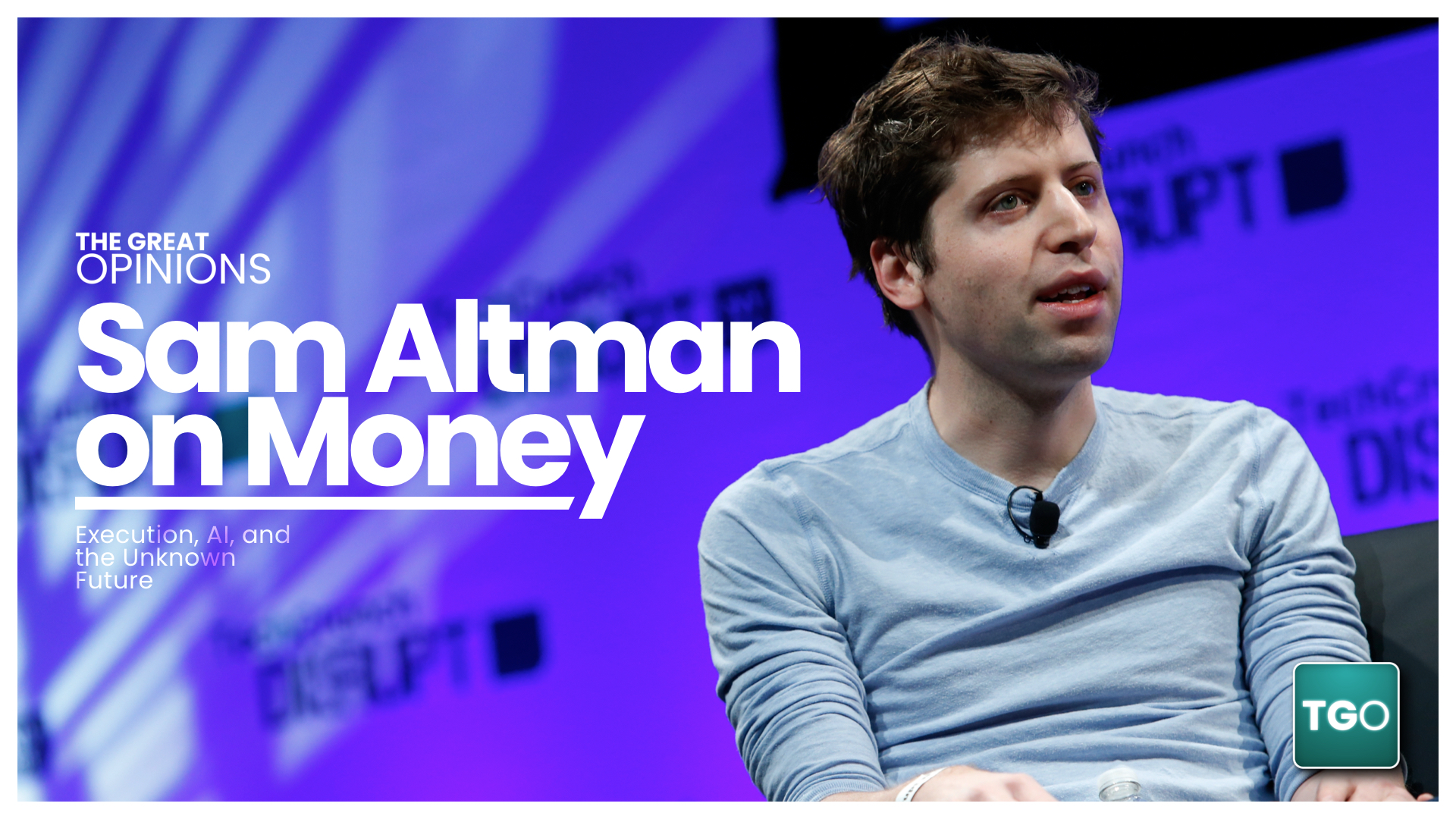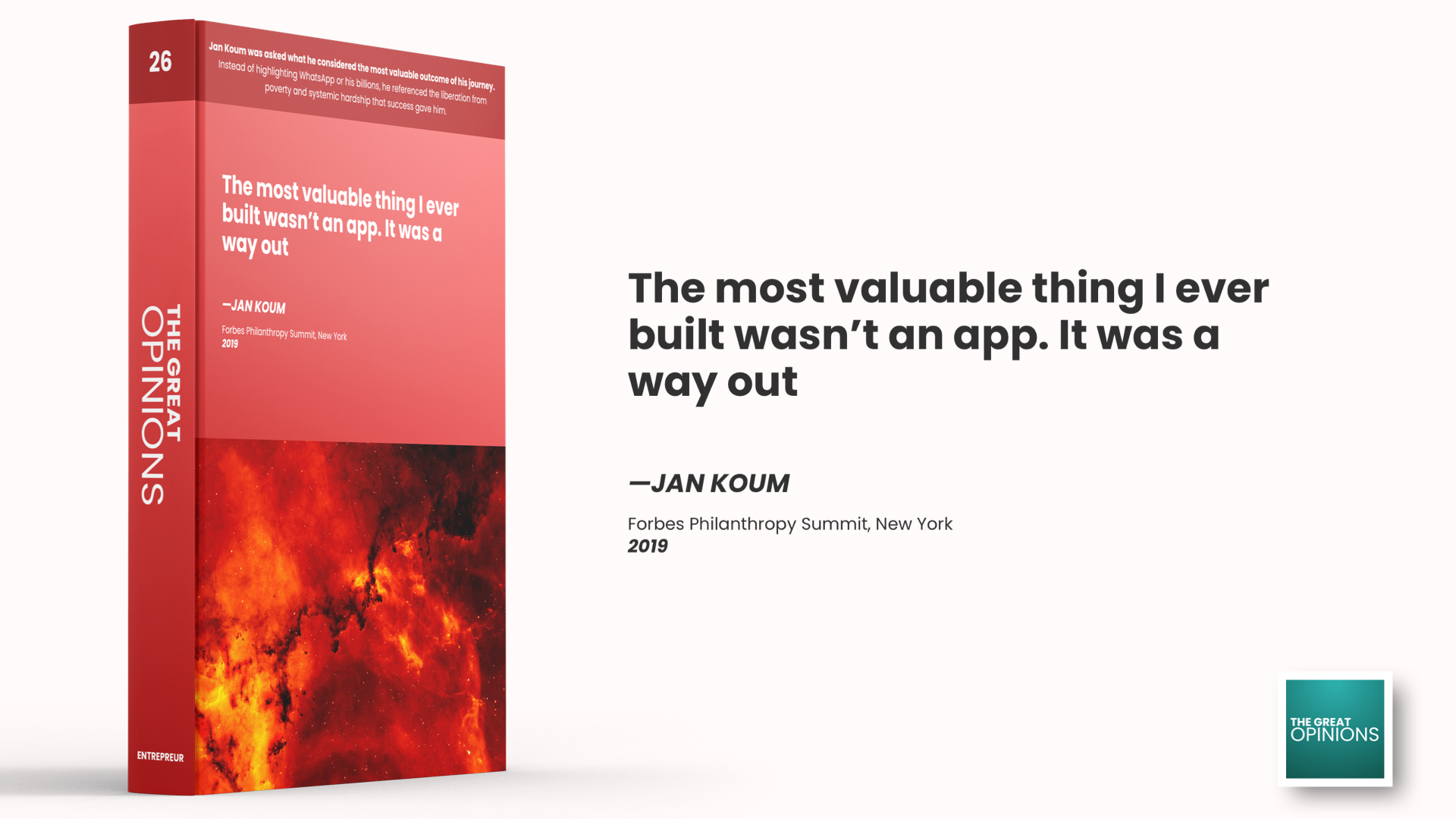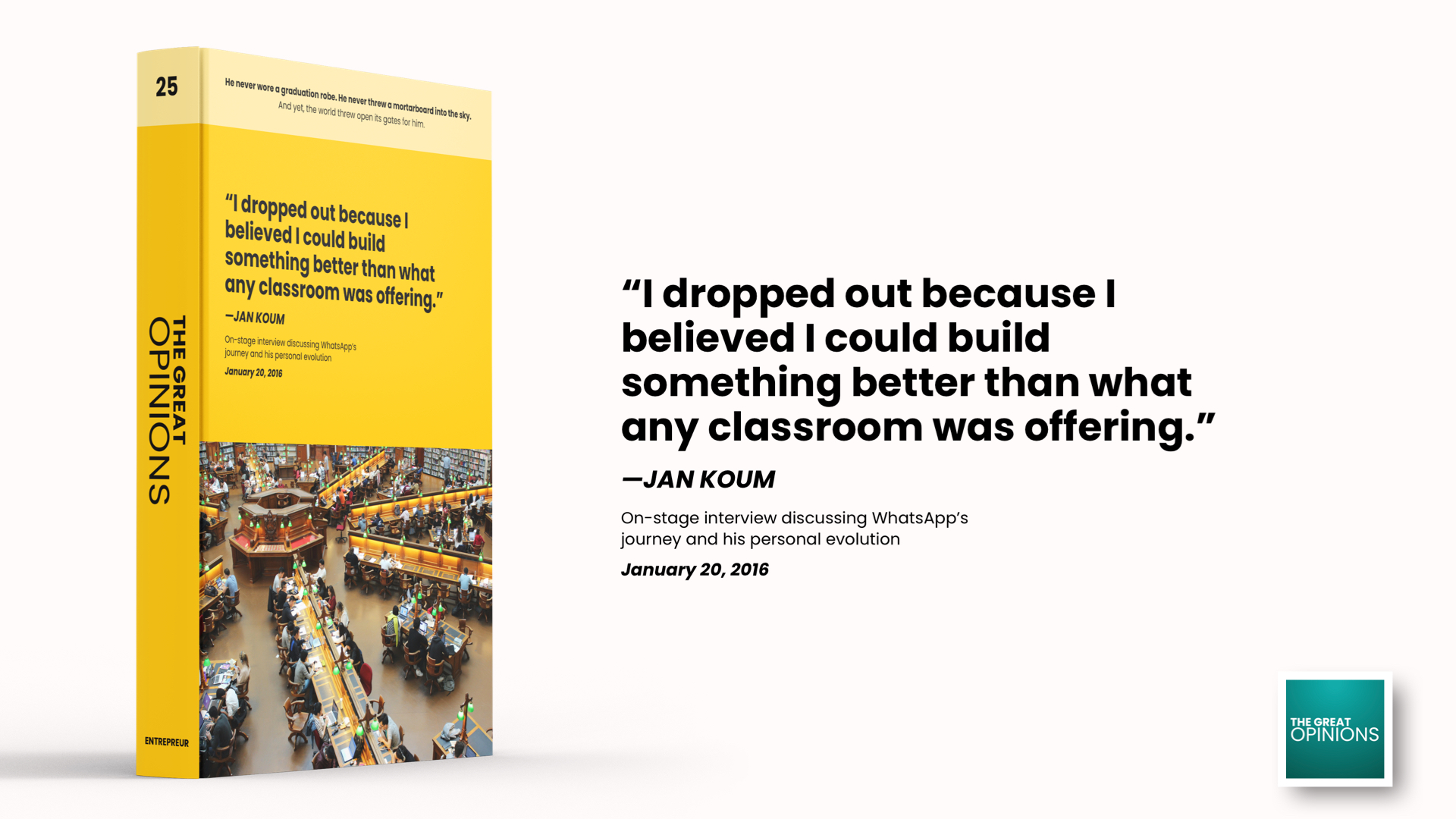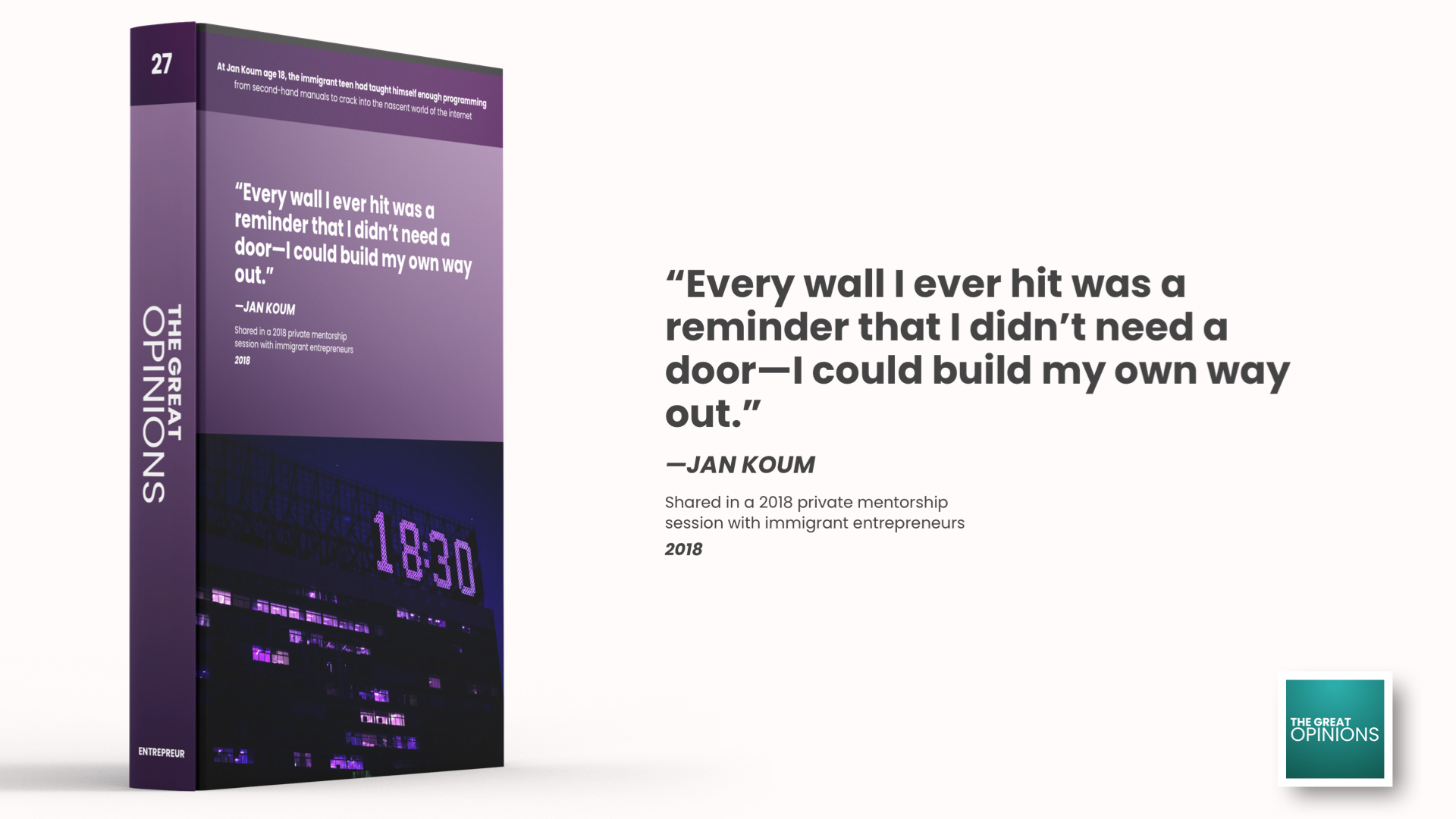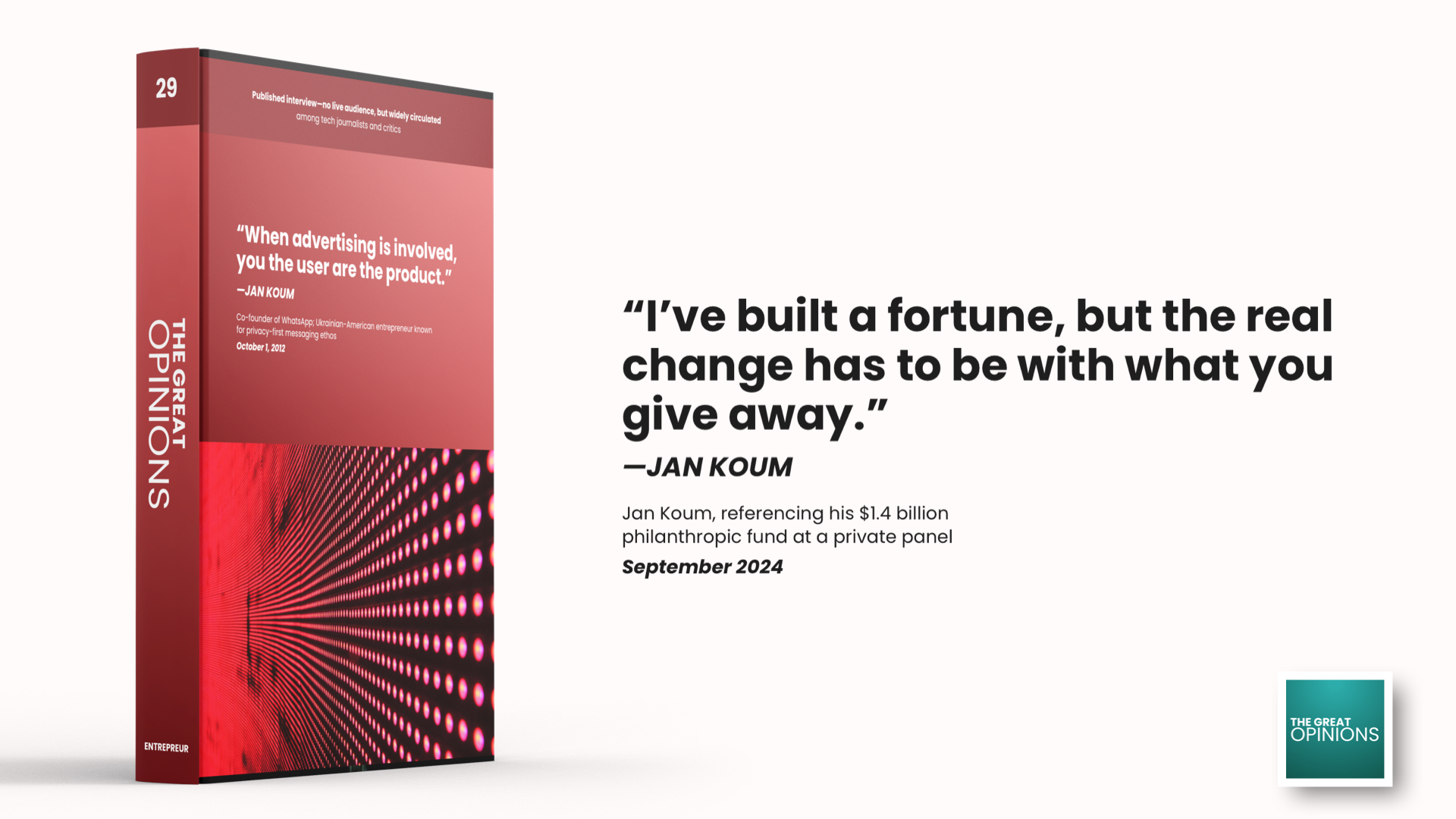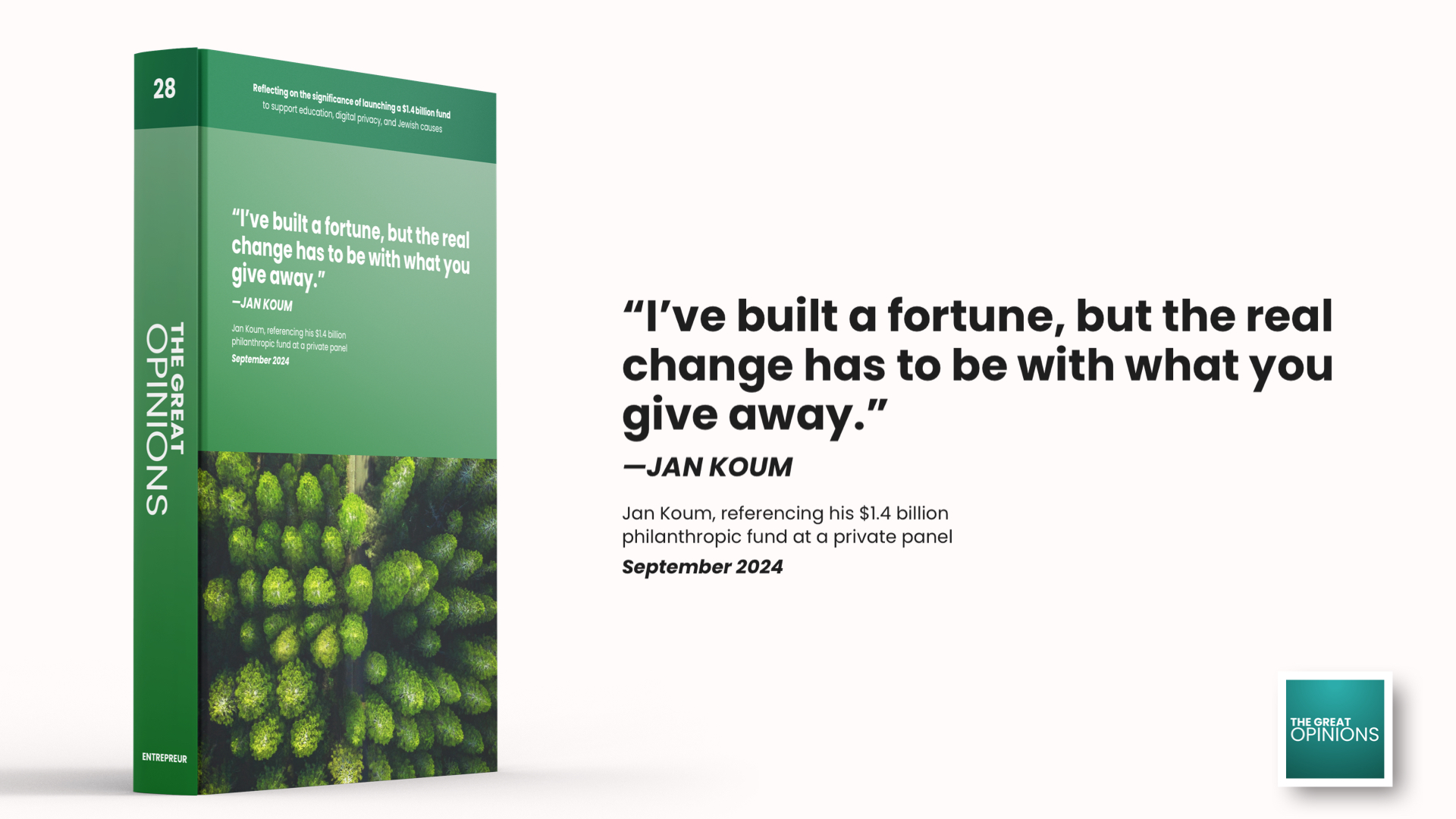For Jan Koum Money was an Escape, Not Status
What the Jan Koum Foundation Really Stands For
| Field | Details |
| Quote | “The most valuable thing I ever built wasn’t an app. It was a way out.” |
| Who Said It | Jan Koum |
| When | 2019 |
| Where | Forbes Philanthropy Summit, New York |
| To Whom | Moderator of the “Exit to Impact” panel, live audience |
| Context | Jan Koum was asked what he considered the most valuable outcome of his journey. Instead of highlighting WhatsApp or his billions, he referenced the liberation from poverty and systemic hardship that success gave him. |
| Why This Quote Matters | It reframes wealth as freedom, not luxury. It embodies Koum’s journey from Soviet scarcity to Silicon Valley independence, aligning the blog’s theme with “Jan Koum net worth” in a human-centered, philosophical light. |
It was 2019, at the Forbes Philanthropy Summit in New York. Jan Koum stood on stage—not as a startup founder pitching a billion-dollar product, but as a man reflecting on the architecture of his life. The panel was titled “From Exit to Impact”, and Koum, who had by then quietly donated hundreds of millions to causes close to his heart, spoke about the unseen value of success. When a moderator asked, “What’s the most valuable thing you’ve ever built?” he paused. Smiled slightly. And said, “The most valuable thing I ever built wasn’t an app. It was a way out.”
Not many clapped immediately. The weight of those words needed a second to settle.
That was the beginning of a new kind of narrative—about a man whose net worth wasn’t just measured in billions, but in escape velocity.
The Grit of Obscurity
Before the sleek glass towers and Fortune 100 interviews, Jan Koum’s world was a tiled Soviet apartment in Fastiv, Ukraine. Water was rationed, phones were tapped, and a life of liberty was something you read about—if you were lucky enough to own books.
When he was 16, Koum moved with his mother and grandmother to Mountain View, California. Their food came from government aid, and their heating was courtesy of neighbors. He swept floors at a grocery store after school. His mom cleaned houses. But somewhere between the language barrier and the bills, Koum found a small fire—computers.
He would read outdated manuals from the public library, take apart machines in junkyards, and experiment with software the same way a sculptor experiments with clay.
And every time something worked—even something small—it felt like he had chiseled a crack into the wall that boxed him in.
From Networks to Network Effects
By the time Koum reached San Jose State University, he wasn’t just a student. He was already a self-taught network security enthusiast, working part-time at Ernst & Young while poking through Yahoo’s security logs. That’s where he met Brian Acton. They clicked—not just because they could finish each other’s code, but because they understood that technology was never just about functionality. It was about power. Control. Escape.
They joined Yahoo together. Spent years debugging mail servers. Slept under desks. Built backend systems no one noticed but everyone relied on.
And in 2007, when Facebook and Google were throwing stock options like candy, they quit.
They didn’t know what they were building yet. But they knew they wanted ownership over their time, their values, and their exit.
WhatsApp and the Price of Principles
The idea for WhatsApp came on Koum’s birthday—February 24, 2009. He was tired of missed calls and expensive texts. What if there was a way to simply update a status and let your contacts know you were available—or not?
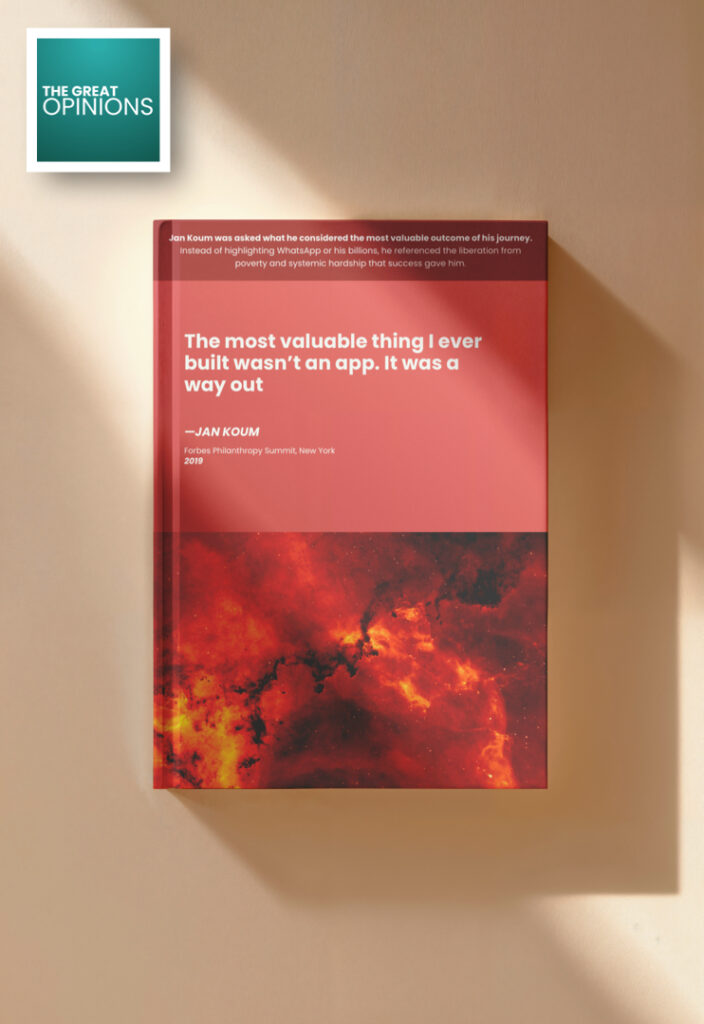
He coded it.
Then recoded it.
Then rewrote it entirely in a new language after Apple updated iOS.
That resilience paid off. WhatsApp exploded—not because it was revolutionary, but because it was invisible. No ads. No gimmicks. Just communication.
Koum insisted on privacy as the product. Even when venture capitalists pushed him to monetize aggressively, he refused. “We don’t hire people to sell ads,” he once told a colleague. “We hire them to build tech people trust.”
By 2014, Facebook came knocking.
$19 billion.
Koum negotiated the terms personally: encryption must remain. Ads would never be added. He walked into Facebook’s boardroom with the kind of clarity most founders lose once valuation enters the conversation.
And when those terms were later at risk, he walked out.
| Milestone | Year | Strategic Keyword Use | Description |
| Migration from Ukraine to U.S. | 1992 | Jan Koum biography | Moved to California with his mother to escape Soviet hardship. |
| Started working at Yahoo | 1997 | Jan Koum story | Joined as an infrastructure engineer, met Brian Acton. |
| Founded WhatsApp | 2009 | Jan Koum whatsapp story | Created WhatsApp after frustration with missed calls and texts. |
| Sold to Facebook | 2014 | Jan Koum net worth | Deal valued at $19B, catapulting his net worth to global headlines. |
| Walked out of Facebook | 2018 | Jan Koum interview | Left after Facebook began pushing monetization against his values. |
| Built the Jan Koum Foundation | 2019–present | Jan Koum foundation | Focused on philanthropy, privacy, and education. |
The Net Worth Nobody Talks About
Today, Jan Koum net worth is estimated at over $15 billion. That number trends every time a Forbes article mentions his yacht or his Porsche 911 GT3 RS. But what doesn’t trend is his foundation—one that funds education, youth safety, and Jewish community services.
What doesn’t trend is that the Jan Koum foundation has quietly given over $500 million to causes ranging from Holocaust education to American civil liberties.
What doesn’t trend is the Jan Koum education qualification—he never completed college.
And yet he’s built systems more secure than most governments can dream of.
He’s given away more than most universities raise.
And he’s created what many call the most unmonetized billion-dollar app of all time.
Because some exits aren’t financial. Some are existential.
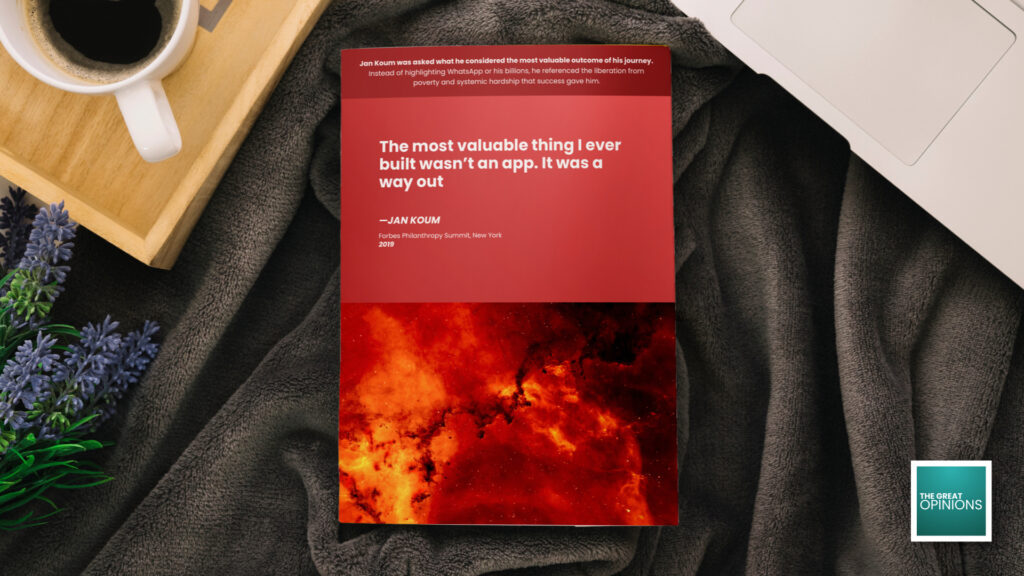
Sources:
https://en.wikipedia.org/wiki/Jan_Koum
https://twitter.com/jankoum?lang=en
https://buildd.co/startup/founder-stories/jan-koum
https://advisorycloud.com/blog/uncovering-the-jan-koum-secrets-to-success

